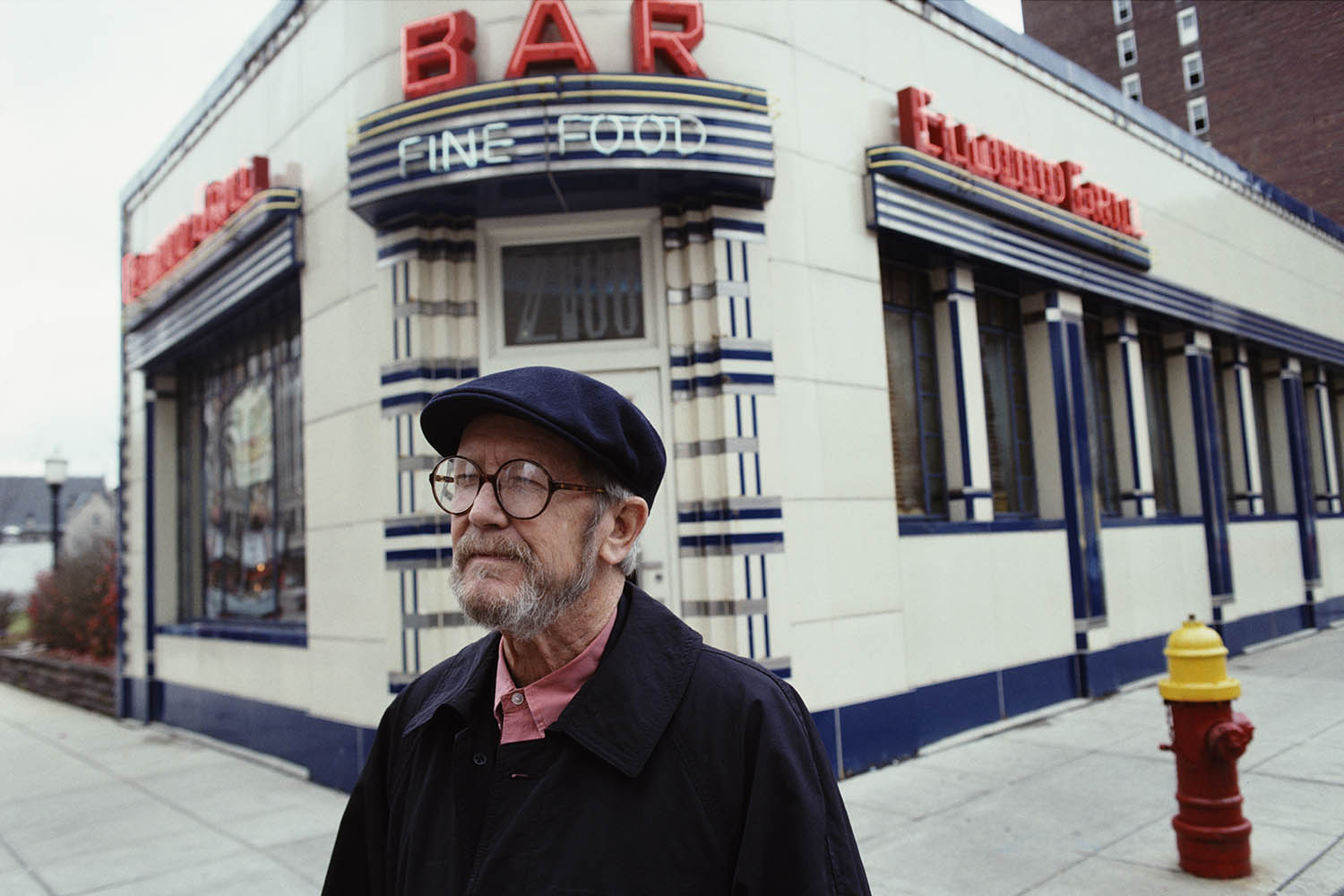No hooptedoodle. That was the essence of crime writer Elmore Leonard’s rules for writing. Hooptedoodle – he took the term from John Steinbeck’s Sweet Thursday – was the stuff that gets in the way of the story and that the reader tends to skip. Descriptive passages, paragraphs of weather, prologues.
This cut-back style worked, making Leonard “the crime writer’s crime writer” (Ian Rankin) whose prose “makes Raymond Chandler look clumsy” (Martin Amis) through dozens of novels in a 60-year career. Now three of his crime capers are joining the Penguin Modern Classics list, with 11 more books to come, including three of his early westerns.
Swag (1976) takes us into the lives of two Detroit no-hopers who decide on “a pretty interesting way to make a living”, that is, “robbery comma armed”. There’s Frank, the brains, and Stick, who doesn’t have much going for him except a willingness to cross the line. Pretty soon, they’re having a ball. “If they’re all this easy,” says Frank, “I believe we found our calling.”
They aren’t all this easy. A shopkeeper refuses to hand over the money even when they threaten to rape his wife. “Never try to hold up an Armenian.” Robbing a supermarket, Frank has to put a customer’s groceries through the till to get rid of her. Two men try to rob Frank and Stick of the money they themselves have just stolen. Everything escalates in a spiral of ambition and hubris, until the bodies are piling up across the pages. It’s energetic and cathartic.
“The bad guys’ viewpoints are a lot more fun,” said Leonard once, but in The Switch (1978), both good guys and bad guys get a look-in – or maybe it’s just that everyone is a little bit bad. Here we meet Louis and Ordell, another couple of criminals who are either inept or unlucky enough for it to look like ineptitude. They team up with a neo-Nazi with “cement for brains” to kidnap Mickey, the wife of a Detroit businessman and demand $1m in ransom money. But unknown to them – and to Mickey – her husband has just initiated divorce proceedings, so if Louis and Ordell follow through on their threat that “your wife’s gone, man”, well, he might save himself some cash.
Amid the double and triple crossings that follow, what holds the chaotic story together is the growing relationship between Louis and Mickey, as well as Leonard’s cast-iron belief that anything, however black, can be played for laughs. (There’s a scene where Louis and Ordell tell their Nazi sidekick that Mickey is Jewish, to make it easier to persuade him to kill her.)
Leonard’s focus on dialogue and action made his books perfect for screen adaptation, and Rum Punch (1992) became Quentin Tarantino’s film Jackie Brown. In the book she’s Jackie Burke, an air steward who’s caught travelling with $50,000 in her bag and gets involved with our friends Louis and Ordell from The Switch, who are now in Florida but otherwise unimproved. “Now Ordell had another scheme. Louis could feel it.”
The scheme involves gun smuggling and draws in a group of other characters, from Jackie, whose husband is dead (“What kind of work did he do?” “He drank”), to bail bondsman Max Cherry. It’s the little details running under the plot that make it such a pleasure, such as Max’s wife’s new partner, an artist who paints her naked in a cane field as “a symbol of her oppression” during her marriage to Max.
And as with the other novels, when a gun appears in Rum Punch it’s not just for set-dressing. This is another cheerfully violent story, where the slickness Leonard developed over his career makes it all the more snappily readable; but I missed the rougher edges that gave the earlier books so much charm.
Charm is important, after all. In Leonard’s books, the story is less important than the vibe: the swing of the dialogue (“We were so poor when I was a kid if you didn’t wake up on Christmas morning with a hard-on you didn’t have anything to play with”), the wry authorial eye on the characters, and the plentiful laughs. All this is hooptedoodle, in its own way – but it’s good hooptedoodle.
Newsletters
Choose the newsletters you want to receive
View more
For information about how The Observer protects your data, read our Privacy Policy
Swag, The Switch and Rum Punch by Elmore Leonard are published by Penguin Modern Classics (£9.99). Order them at observershop.co.uk for a special 20% launch offer. Delivery charges may apply
Photograph by Getty Images
